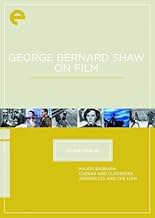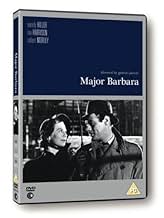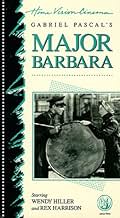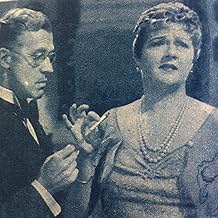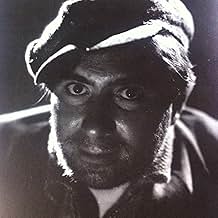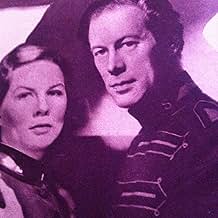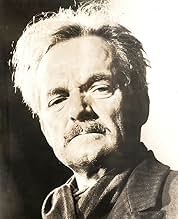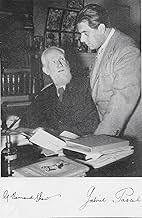A young and idealistic woman, who has adopted the Salvation Army and whose father is an armament industrialist, will save more souls directing her father's business.A young and idealistic woman, who has adopted the Salvation Army and whose father is an armament industrialist, will save more souls directing her father's business.A young and idealistic woman, who has adopted the Salvation Army and whose father is an armament industrialist, will save more souls directing her father's business.
- Awards
- 1 nomination total
Storyline
Did you know
- TriviaFilming went on through the German Blitz. Producer and Director Gabriel Pascal had his own spotter on the roof who blew a horn when he spied German planes. According to Ronald Neame, nobody had told Wendy Hiller, so when the horn sounded during a rehearsal and everybody left, Hiller was bewildered.
- Goofs(at around 1h 35 mins) Just before she scolds her husband for addressing her as "Biddy", a boom mic shadow passes over the lace trim on the bosom of Lady Britomart's (Marie Lohr) gown.
- Quotes
Andrew Underschaft: [to son, Stephen] Well, is there anything you know or care for?
Stephen Underschaft: I know the difference between right and wrong.
Andrew Underschaft: You don't say so! What? No capacity for business? No knowledge of law? No sympathy with art? No pretention to philosophy? Only a simple knowledge of the secret that has baffled all the lawyers, muddled all the men of business, and ruined most of the artists - secret of right and wrong. Why man, you're a genius. A master of masters. A god. And at 28, too.
- Alternate versionsA long final speech by Undershaft (Robert Morley) was filmed but cut before release. The National Film Theatre showed this version many years ago. The British Film Institute lists a print running 136 minutes - some 15 minutes longer than the released version - which presumably is that version.
- ConnectionsFeatured in Discovering Film: Rex Harrison (2015)
- SoundtracksHow Sweet the Name of Jesus Sounds
(uncredited)
Music by Alexander Reinagle (1836)
Words by John Newton (1779)
Arranged by William Walton
The essential question in "Major Barbara" concerns the root of the Industrial Age's social ills. Barbara (well-acted by Wendy Hiller) would argue that the greed of whiskey manufacturers and the social rapacity of the ruling classes are the culprits. Her father, on the other hand, maintains that civilization's greatest sin is the existence of poverty. Further, he deplores the shameless glorification of the "meek, honest, and downtrodden" poor and the empty condescension that is offered to those who live in filth, disease, and constant hunger. And since Andrew Undershaft is the play's hero and Shaw's philosophical stand-in (Robert Morley, the actor who plays him, is even made up to resemble Shaw), there can be little doubt as to which character, father or daughter, will ultimately triumph.
Since Shaw was directly involved in this project, it's doubtful that purists will object to the fact that the film includes additional scenes that did not appear in the play's original text. A new prologue introduces us to Adolphus Cusins (Rex Harrison), the professor of Greek classics who is a dismal failure as a Hyde Park lecturer. When his speeches fail to hold or entrance an audience, he is advised by a sympathetic street patrolman (Stanley Holloway) to sample the "religious" speaking-circuit. Deciding he has nothing to lose, Adolphus heeds the policeman's advice, and while doing so, he encounters Barbara speaking to a crowd with incredibly religious fervor, and he is instantly smitten. From there, the movie segues into Shaw's original First Act.
Another important addition is the mock religious conversion of the drunken Bill Walker by wrestler-turned-Salvation-Army-sergeant Todger Fairmile, a scene only described in Shaw's original transcript. Robert Newton, a very fine actor who was especially memorable in Hitchcock's "Jamaica Inn" (1939), here plays Walker as an unbridled, unapologetic savage of a bully. His profane dismissals of the aged Miss Mitchens and the quickness of his physical abuse of the docile Army volunteer Jenny Hill provide the film's most shocking moments. But Walker's more lethal ammunition is used in his verbal taunting of Barbara ("What price Salvation, now?") after her disillusionment with and ultimate resignation from the Army of Good Samaritans. So deep is her despair that she almost commits suicide.
Her abandonment of the Army occurs after her superior accepts a large gift of money in the form of a check signed by her own father. Barbara insists that the money is tainted, that its blood money, gleaned from her father with the sweat of his underpaid workers and by the misery suffered by the victims of Undershaft's armaments industry. However, when reluctantly following up on her father's invitation to visit his munitions plant, she discovers that Undershaft's company town is a working-man's suburban paradise of modern architecture and schools and churches; and she then understands that it is not her father who drives the hellish multimillion-dollar business that makes this Eden possible. It drives him. And the film's concluding shot of Cusins, Walker, and Barbara, marching arm-in-arm with the rest of Undershaft's proletariat, is a celebration of the playwright's ironic vision.
Shaw is primarily enjoyed for the intelligent wit of his dialogue, but he had a serious purpose here. As the playwright himself reflected in 1906, a year after the play's premiere, "Undershaft...is simply a man who, having grasped the fact that poverty is a crime, knows that when society offered him the alternative of poverty or a lucrative trade in death and destruction, it offered him (a choice) between energetic enterprise and cowardly infamy."
Gabriel Pascal produced and directed adequately. Here, his style is very understated and completely serviceable to the film's source. The scenes are paced briskly, even by modern standards. And the casting is superb, particularly Emlyn Williams's two-faced cynic/beggar, Snobby Price (the name says it all); Deborah Kerr is an affecting Jenny Hill (she obtained this film role by reciting the Lord's Prayer for producer Pascal); Torin Thatcher is in fine comic form as Todger Fairmile; and Marie Lohr manages to quietly hit all the right notes as Undershaft's priggish wife, Lady Britomart.
- How long is Major Barbara?Powered by Alexa
Details
- Release date
- Country of origin
- Language
- Also known as
- George Bernard Shaw's Major Barbara
- Filming locations
- Royal Albert Hall, South Kensington, London, England, UK(Salvation Army rally scene)
- Production company
- See more company credits at IMDbPro
- Runtime2 hours 1 minute
- Color
- Aspect ratio
- 1.37 : 1
Contribute to this page


